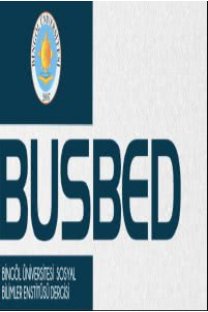SÜREÇ FELSEFESİNDE ‘İRADE’ KAVRAMININ TEMELLENDİRLİŞİ
Süreç felsefesinde irade kavramı en önemli kavramlardan biridir. İrade, insan aklının beraberinde iş gördüğü, ancak yeri geldiğinde başlı başına belirleyici olan bir yetidir de. Antik Yunandan günümüze kadarki felsefe insanın en önemli özelliğinin iradi varlık olmasına bağlayarak, insanın varoluşun bir değer ve anlam kazanmasının iradesiyle mümkün olduğuna dikkat çekmiştir. Süreç felsefesi insanı bir yetkinlik kazanmaya ve kemale doğru ilerleyen bir süreç/süreç içinde varlık olarak görmektedir. İnsanın özgür varlık olmasını sağlayan en önemli yeti iradedir. Süreç felsefesi, iradenin insanlığı ontolojik açıdan oldukça önemli krizlere yol açmış olduğuna dikkat çekmektedir. İşte süreç felsefesi irade kavramına dikkat çekmekle birlikte bu meselenin nasıl aşılabileceğine ilişkin değerli noktalara temas etmektedir. Çalışmamızda süreç felsefesinin bu bağlamda irade kavramına verdiği önemi ortaya koymakla birlikte iradenin temellendiği noktaları nasıl belirlemekte olduğunu araştırmaya çalışacağız.
THE BASIS OF THE CONCEPT OF ‘WILL’ IN THE PROCESS PHILOSOPHY
In the process philosophy, the concept will is one of the most important concepts. Will is an authority that works with the human mind but also decisive when it appears by itself. Ancient Greek philosophy attaches the most important characteristic of human beings to being a pious existence, accordingly, it is possible for human beings to have a value and meaning with the will of man. Process philosophy sees the human being as an entity in a process / process that proceeds toward gaining competence and maturity. The most important power that enables man to be a free being is the will-power. The process philosophy points out that the human intellect has given rise to very important crises from the ontological point of view. Here, while drawing attention to the concept of process philosophy of will, it is invaluable to address how this problem can be overcome. In this study, it is aimed to reveal how the process philosophy approaches to the notion of will in this context, and how to determine the points on which it is based.
___
- ANDREW, Bjelland. C. (1974), “Bergson’s Dualism in ‘Time and Free Will”, Process Studies, V. 4, N. 2, Summer. 83-1206.
- ALBAYRAK, Mevlüt (2001, İbn Sina ve Whitehead Açısından Tanrı-Âlem İlişkisi ve Kötülük Problemi, Isparta, Fakülte Yayınevi.
- AYDIN, Mehmet. S. (1991), Tanrı-Ahlak İlişkisi, Ankara, Türkiye Diyanet Vakfı.
- AYDIN, Mehmet. S. (2000a), Alemden Allah’a, İstanbul, Ufuk Kitapları.
- AYDIN, Mehmet. S. (2000b), İslam Felsefesi Yazıları, İstanbul, Ufuk Kitapları.
- AYDIN, Mehmet S. (1987), “İkbal’in Felsefesinde İnsan,” Ankara Üniversitesi İlahiyat Fakültesi Dergisi, c. XXIX, S.1, 1987. 83-106
- BERGSON, Henry. (1986), Ahlak ile Dinin iki Kaynağı, Çev. Mehmet Karasan, İstanbul, Bilim ve Kültür Eserleri Dizisi.
- DAVIS, Richard. S. (1973), “Whitehead’s Moral Philosophy”, Process Studies, V. 3, N, 2. Summer. pp. 75-90.
- GRIFFIN, David, R. (1992), At All Funders of Constructive Postmodern Philosophy: Perice, James; Bergson, Whitehead and Hartshorne, New York, Albany: State University Press.
- GÖKALP, Nurten. (2001), “Thomas Aquinas ve İrade Kavramı”, Felsefe Dünyası 34. Sayı, ss. 26-29.
- GÖKALP, Nurten. (2002), “İradede Duygunun Etkisine Genel Bir Bakış”, Felsefe Dünyası. Sayı 2,ss. 37-44.
- MENTA, Timothy. (2004), “Claire Palmer’s Environmental Ethics and Process Thinking: A Hartshornean Response”, Process Stduies, V. 33, N. 1, Spring –Summer. s. 27.
- MOMİNOV, Kasım (2007), Süreç Felsefesinde Ahlak, Dokuz Eylül Üniversitesi, Sosyal Bilimler Enstitüsü, Felsefe ve Din Bilimleri Anabilim Dalı, Doktora Tezi. İzmir.
- İKBAL, Muhammed. (1995), İslâm Felsefesine Bir Katkı, Çev, Cevdet Nazlı, İstanbul, İnsan Yayınları.
- LEWIS, Ford. S. (2003), “On the Origin of Process Theizm”, Process Studies, V.32, N. 2, Fall-Winter. pp. 290-291.
- WHITEHEAD, Alfred. N. (1967a), Adventure of Ideas, The Free Press, New York, 1967.
- WHITEHEAD, Alfred. N. (1938), Modes of Thought , New York: Macmillan, The Free Press, New York, 1938.
- WHITEHEAD, Alfred. N. (1967 b), Process and Reality, Edited by David Ray Griffin, New York, The Free Press.
- ISSN: 1309-6672
- Yayın Aralığı: Yılda 2 Sayı
- Başlangıç: 2011
- Yayıncı: Yusuf Aydoğdu
Sayıdaki Diğer Makaleler
ULUSÖTESİ TOPLULUKLAR VE ETNİK DAYANIŞMA: SAMSUN VE SURIYE ÇERKESLERİ
Emir Fatih AKBULAT, Hüdayi SAYIN
ORGANİZASYONLARDA UZUN SÜRE YÖNETİMDE KALMANIN SIRLARI VE GÖZLEMLENEMEYEN HETEROJENLİK
YEREL BASINA GÖRE 1935-1950 YILLARI ARASINDA URFA’DA MAHALLİ VE MİLLİ BAYRAM KUTLAMALARI
FARABİ’NİN FÂZIL ŞEHİR’İNDE AMAÇ VE ARAÇ DEĞERLER
İBRAHİM SANİ MERT, BAYRAM OĞUZ AYDIN
ÇOK PARTİLİ SİYASAL HAYATIN DÖNÜM NOKTASI: 1950 SEÇİMLERİ
FOREST FIRE SUSCEPTIBILITY ANALYSIS OF KAHRAMANMARAS PROVINCE
ÇALIŞANLARIN 360 DERECE PERFORMANS DEĞERLEMEYE YAKLAŞIMLARI: BİR TELEKOMÜNİKASYON ŞİRKETİ ÖRNEĞİ
LIFE SATISFACTION AND HAPPINESS WITH REGARD TO HUMAN CAPITAL AND RELIGIOSITY IN TURKEY
